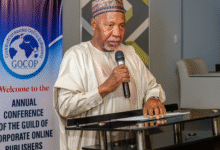Films To Watch In March
The Grand Budapest Hotel
Wes Anderson’s latest film had rave reviews when it premiered at the Berlin Film Festival. Set at a central European hotel between the two world wars, the screwball comedy from the director of The Fantastic Mr Fox and The Royal Tenenbaums has an ensemble cast: Ralph Fiennes stars alongside Tilda Swinton, Edward Norton, Willem Dafoe and Anderson regulars Bill Murray and Jason Schwartzman. Playing a concierge blamed for the death of an octogenarian widow, Fiennes embarks on a madcap chase through the Alps; the film is full of Anderson’s quirky visual motifs, with a rich colour palette and shots of miniature models. Released 7 March in the US, 20 March in Singapore, and 27 March in Argentina.
Enemy
This is the season of the doppelgänger: Richard Ayoade’s The Double, based on a novella by Fyodor Dostoyevsky, will be out in May, while this Canadian-Spanish erotic thriller is hitting screens in March. Enemy has its own high-class literary credentials; featuring Jake Gyllenhaal in a dual role, it is based on a 2002 novel by Nobel Prize-winning Portuguese author José Saramago. Gyllenhaal teams up again with his Prisoners director Denis Villeneuve to play a professor who seeks out his exact lookalike after spotting him in a movie. Released 14 March in the US and Canada, and 28 March in Spain. (A24)
Le Week-End
There’s nothing like a trip to Paris to reignite the spark in a 30-year marriage. Or is there? Such is the premise for Le Week-End, as Nick (Jim Broadbent) and Meg (Lindsay Duncan) play the bickering couple hoping to find the lost love in their relationship. The film is the fourth collaboration between director Roger Michell and writer Hanif Kureishi − the pair’s previous pictures include The Mother (2003) and Venus (2006). Released 5 March in France, 14 March in the US and 27 March in the Netherlands. (Music Box Films)
Breathe In
US director Drake Doremus teams up again with actress Felicity Jones and co-writer Ben York Jones after their 2011 Sundance Grand Jury Prize-winning Like Crazy. Jones plays a foreign exchange student who threatens a family’s stability after she arrives to live with them; Guy Pearce is the father, a music teacher nursing unfulfilled ambitions of being a concert cellist. The actors work without a script, and all the dialogue is improvised. In an interview with The Guardian, Doremus explains the exhausting process by which he arrives at a scene. “I start with a 60-page outline that basically reads like a short story, filled with backstory, the emotional beats of the scene, subtext, plot points, but very little dialogue,” he says. “Every take, the scene gets more and more distilled. The first take is 15 minutes, the second take is 10, and before you know it we get down to the two-minute scene we need.” Released 6 March in Portugal, and 28 March in the US. (Cohen Media Group)
Noah
Darren Aronofsky’s biblical epic has angered some Christian groups who claim it isn’t close enough to the original story; in an interview with Rolling Stone, the director of Black Swan and Requiem for a Dream argued that Noah is a faithful adaptation. “We tried to remain truthful to the themes and the ideas that are written, but to create a dramatic story for a 21st Century audience,” he said. His retelling of the classic flood story stars Russell Crowe as the man with the ark: the actor suggested a screening to Pope Francis via Twitter. Released 26 March in Egypt, 27 March in Australia and 28 March in the US. (Paramount Pictures)
The Missing Picture
Nominated for a best foreign film Oscar, this Cambodian documentary is part memoir, part reflection on the Khmer Rouge’s reign of terror in the 1970s. Many of Rithy Panh’s family died in the labour camps aimed at ‘re-educating’ the people; through a combination of archive footage and clay animation, he tells their story before and after Pol Pot’s Communist regime took over in 1975. Released 5 March in Belgium, 19 March in the US and 27 March in the Netherlands. (Strand Releasing)
Jodorowsky’s Dune
Dune – as conceived by Chilean filmmaker Alejandro Jodorowsky, rather than the later version by David Lynch – is arguably one of the most famous movies never made. In pre-production for over two years during the 1970s, Jodorowsky’s adaptation of Frank Herbert’s classic science-fiction novel was due to star Orson Welles, Mick Jagger, David Carradine and even Salvador Dalí, set to a musical score by Pink Floyd. It was shelved after investors lost confidence – even Herbert disavowed the project – but in this documentary, we catch a glimpse of Jodorowsky’s vision as he talks about the film that never was. Released 7 March in the US. (David John Cavallo/Sony Pictures Classics)
Nymphomaniac Volumes 1 and 2
Redacted from a more explicit director’s cut, the two volumes tell the story of sex addict Joe (played at different stages by newcomer Stacy Martin and Charlotte Gainsbourg). Danish director Lars Von Trier uses porn doubles for stars including Shia LaBeouf and Uma Thurman, showing a series of sexual encounters in a narrative veering uneasily between the profound and the comic. The poster campaign – featuring the actors’ orgasmic expressions – has fuelled controversy, with questions over whether the film constitutes art or pornography. Released 21 March in the US, 27 March in Australia and 3 April in Italy. (Magnolia Pictures)
Ernest & Celestine
Featuring the vocal talents of Forest Whitaker, Lauren Bacall and Paul Giamatti, this French-Belgian animation concerns the unlikely friendship between a destitute bear and an orphaned mouse. Having already screened at several festivals, the heartwarming story has won praise from the critics – and is also in contention for best animated feature at the Academy Awards. Released 28 February in the US. (StudioCanal)
Courtesy: BBC




















